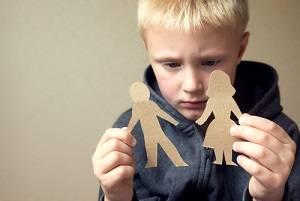Recent Blog Posts
Positives and Negatives of Changing Careers During Divorce
 Common sense says that you should not embark on a life-changing event such as starting a new career at the same time as you are going through a divorce. Doing both will divide the time and energy you need to devote to each, as well as pile stress on yourself. However, one change can beget another, and getting a divorce may cause you to reconsider your current career and whether it is meeting your needs. Starting a career change during a divorce can be good or bad timing, depending on the reasons for the change.
Common sense says that you should not embark on a life-changing event such as starting a new career at the same time as you are going through a divorce. Doing both will divide the time and energy you need to devote to each, as well as pile stress on yourself. However, one change can beget another, and getting a divorce may cause you to reconsider your current career and whether it is meeting your needs. Starting a career change during a divorce can be good or bad timing, depending on the reasons for the change.
Positives
There are typically three reasons that someone wants to change their career during their divorce:
- They need a better-paying job in order to be financially independent of their spouse;
- The work hours of their current job will make it difficult for them to have regular parenting time with their children; or
How is Child Custody Determined in Illinois Divorce Cases?
 Divorce is never easy for anyone, but it can be particularly stressful when a couple has children and they intend to divorce. With children comes a slew of extra issues and arrangements you must agree upon before you can finalize your divorce.
Divorce is never easy for anyone, but it can be particularly stressful when a couple has children and they intend to divorce. With children comes a slew of extra issues and arrangements you must agree upon before you can finalize your divorce.
Illinois courts require that you and your spouse have a parenting plan filed with the court before you can finalize your divorce to your spouse. A parenting plan is a document that outlines both significant decision-making responsibilities and parenting time (which is now the term used for child custody). Coming to an agreement on child-related issues can be stressful and sometimes a judge must step in to settle disagreements.
Factors for Consideration
Before a judge steps in and begins allocating parenting time, the parents are encouraged to come up with a parenting time plan on their own. This both increases the likelihood that both parents will stick to the plan, but it also helps foster cooperation and communication between the parents.
Which Circumstances Allow You to Modify Child Support Payments?
 Due to the overhaul of Illinois’ child support law a few years ago, some divorced or separated parents are working under a drastically different child support system than others:
Due to the overhaul of Illinois’ child support law a few years ago, some divorced or separated parents are working under a drastically different child support system than others:
- For child support agreements created before July 1, 2017, the non-resident parent pays a percentage of his or her income, based on the number of children; and
- For child support agreements created since July 1, 2017, the total child support obligation is determined by the parents’ combined incomes, and the non-resident parent pays a percentage of the obligation that is proportionate to his or her share of the combined incomes.
The new child support model would potentially reduce the payments of a parent who was using the previous child support model. However, the existence of the new law is not enough reason to allow a modification of a child support agreement.
Can Empty Nest Syndrome Lead to Divorce?
 Parents commonly experience empty nest syndrome after their children have moved out of the home. They can feel lonely and lacking a purpose or identity. Ideally, their marriage will fill the parenting void, but empty nest syndrome can put pressure on a weak marriage. If your marriage is falling apart without your children, you may need to consider divorce. Starting anew can help you discover the purpose and fulfillment you have been looking for.
Parents commonly experience empty nest syndrome after their children have moved out of the home. They can feel lonely and lacking a purpose or identity. Ideally, their marriage will fill the parenting void, but empty nest syndrome can put pressure on a weak marriage. If your marriage is falling apart without your children, you may need to consider divorce. Starting anew can help you discover the purpose and fulfillment you have been looking for.
Reasons for Divorce
Parenting can hold together a marriage that may have crumbled otherwise. Between your parental responsibilities and your career, you may give little thought to your relationship with your spouse as long as you feel fulfilled in these other areas. The bond you share as parents will never completely disappear, but that by itself does not make you compatible partners. With the children out of the house, your spouse may be the only person that you regularly interact with. When this happens, you may realize that you and your spouse:
How to Find and Identify Hidden Assets During Property Division
 Each side during a divorce is responsible for researching their various marital assets to ensure that there is an equitable division of property. However, your spouse may try to gain an advantage by hiding assets from you. Even if the hidden assets are not marital property, they are part of your spouse’s individual wealth after your divorce. A divorce court may award you additional marital properties or greater spousal maintenance if your spouse has significant individual assets. Finding hidden assets may take more effort than the normal discovery process in a divorce.
Each side during a divorce is responsible for researching their various marital assets to ensure that there is an equitable division of property. However, your spouse may try to gain an advantage by hiding assets from you. Even if the hidden assets are not marital property, they are part of your spouse’s individual wealth after your divorce. A divorce court may award you additional marital properties or greater spousal maintenance if your spouse has significant individual assets. Finding hidden assets may take more effort than the normal discovery process in a divorce.
Where to Look
Suspecting that your spouse has hidden assets does not mean that you know what they are or where they have been hidden. Fortunately, there should be financial records of the purchase or movement of substantial assets. There are several sources that may lead you to hidden assets:
The Problems with Lifestyle Clauses in Prenuptial Agreements
 Because of Illinois’ no-fault divorce law, couples can no longer punish each other for acts such as infidelity when filing for divorce. Previously, spouses may have accused each other of immoral behavior in order to avoid paying spousal maintenance or keep a greater share of the marital properties. Now, irreconcilable differences are the only reason that couples can cite for their divorce. Some couples are instead using prenuptial and postnuptial agreements to try to penalize a spouse’s behavior. A lifestyle clause sets rules for a marriage that will result in a financial penalty if either spouse breaks them. However, you should understand the potential problems of lifestyle clauses before you include one in your agreement.
Because of Illinois’ no-fault divorce law, couples can no longer punish each other for acts such as infidelity when filing for divorce. Previously, spouses may have accused each other of immoral behavior in order to avoid paying spousal maintenance or keep a greater share of the marital properties. Now, irreconcilable differences are the only reason that couples can cite for their divorce. Some couples are instead using prenuptial and postnuptial agreements to try to penalize a spouse’s behavior. A lifestyle clause sets rules for a marriage that will result in a financial penalty if either spouse breaks them. However, you should understand the potential problems of lifestyle clauses before you include one in your agreement.
Enforceability
Lifestyle clauses are relatively new, which means that there is little legal precedent for them in courts. The individual opinions of the judge may determine whether a court enforces the clause. Some judges may reject any provision that penalizes a spouse for fault during a divorce. Other judges may allow the clause as long as:
How Staying in a Bad Marriage Could Be Worse For Your Kids Than Divorce
 One of the things that holds back many couples from divorcing is the children. Many parents worry and wonder what kind of effects the divorce would have on their children, even if they know that a divorce would be best for their personal wellbeing. In reality, many parents do not know that staying in an unhappy marriage can actually be more detrimental to a child’s wellbeing than divorce. Here are a few ways as to how staying in an unhappy marriage could harm your children:
One of the things that holds back many couples from divorcing is the children. Many parents worry and wonder what kind of effects the divorce would have on their children, even if they know that a divorce would be best for their personal wellbeing. In reality, many parents do not know that staying in an unhappy marriage can actually be more detrimental to a child’s wellbeing than divorce. Here are a few ways as to how staying in an unhappy marriage could harm your children:
Chronic Stress and Tension
If you are feeling the stress at home, then your children probably are too. Constant fighting or bickering can mean chronic tension in the home and that is not good for anyone. Your children will feel it and will feel uneasy in their own home.
Low Self-Esteem
Children absorb everything around them. When their surroundings are full of fighting and rejection, children tend to internalize that, which turns into low self-esteem. Constantly being at odds with your spouse can cause your child to feel uncertain and rejected.
Work Travel Can Interfere with Parenting Time
 A parent’s work commitments can be an important factor when determining the allocation of parental responsibilities. To have a majority of the parenting time, you must show that you are consistently available to care for your children as a single parent. Work travel can affect your availability if it consistently requires you to be out of town. A parent with a heavy travel schedule may have difficulty receiving the share of parental responsibilities that he or she wants during a divorce.
A parent’s work commitments can be an important factor when determining the allocation of parental responsibilities. To have a majority of the parenting time, you must show that you are consistently available to care for your children as a single parent. Work travel can affect your availability if it consistently requires you to be out of town. A parent with a heavy travel schedule may have difficulty receiving the share of parental responsibilities that he or she wants during a divorce.
Children’s Best Interest
Before arguing for a majority of the parental responsibilities, you should honestly assess whether you can fulfill that responsibility with your work travel requirements. The primary parent after a divorce is typically the one who is most available to care for the children. It may be necessary for your co-parent to have a majority of the parenting time if your work requires you to frequently stay overnight in another city. Parental responsibilities also include making decisions about how you care for your children. Ideally, your co-parent will consult you on major decisions regarding your children’s health and education. However, a court may give greater decision-making power to the parent who is more often with the children and able to act on those decisions.
How to Protect Your Business During an Illinois Divorce
 If you own a business or professional practice, chances are that is one of your most valuable assets. It takes endless work and a lot of dedication to grow a business and have it become successful. The last thing you want is to have half of it taken away when you get a divorce. Everything you and your spouse have together must be divided before you can finalize your divorce -- and that can include businesses and professional practices. Do not worry -- there are things you can do to make sure your business remains in your possession. Here are five ways you can protect your business during your divorce:
If you own a business or professional practice, chances are that is one of your most valuable assets. It takes endless work and a lot of dedication to grow a business and have it become successful. The last thing you want is to have half of it taken away when you get a divorce. Everything you and your spouse have together must be divided before you can finalize your divorce -- and that can include businesses and professional practices. Do not worry -- there are things you can do to make sure your business remains in your possession. Here are five ways you can protect your business during your divorce:
1. Get a Fair Valuation
The first step you should take before you begin dividing up your assets is to get a valuation of your business, so you know what it is worth. Instead of estimating what your business is worth, you may opt to use a court-appointed evaluator who will look at multiple facets of your business to arrive at a valuation. Such aspects include your business records, the business’ goodwill, and business competition. Then, you can hire an outside professional to review the numbers just to make sure everything is square.
When a Serious Illness Leads to a Divorce
 As cruel as it may seem, a spouse developing a severe or chronic illness can increase the risk of divorce. Husbands, in particular, are more likely than wives to request a divorce, whether it is during treatment or recovery. Diagnosis of serious sicknesses, such as cancer, puts stress on a marriage, and a relationship that was already weak may not survive. It is important to seek help if you are going through a divorce while also fighting against major illness.
As cruel as it may seem, a spouse developing a severe or chronic illness can increase the risk of divorce. Husbands, in particular, are more likely than wives to request a divorce, whether it is during treatment or recovery. Diagnosis of serious sicknesses, such as cancer, puts stress on a marriage, and a relationship that was already weak may not survive. It is important to seek help if you are going through a divorce while also fighting against major illness.
Sources of Stress
Treatment for a serious health problem puts pressure on both spouses. In some cases, the sick spouse may never fully recover, which will permanently change their marriage. Though the supporting spouse may try to remain loyal, he or she may be unable to handle the stress of:
- Taking on new or increased responsibilities in their marriage;
- Growing medical expenses related to the illness;











